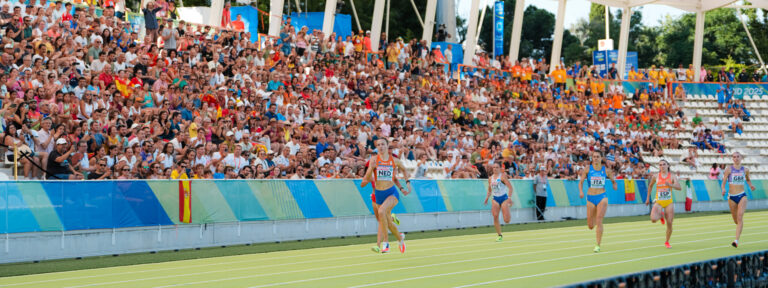A summary of the 60-year history of the European team competition par excellence, which in 2025 will arrive in Madrid in style.
The European Team Athletics Championships is, after the individual European Championships, the most important international outdoor competition on the Old Continent. An unmissable event in the athletic calendar every odd-numbered year in which all the European teams fight for continental hegemony.
Up to the current format of three divisions with 16 countries each (except for the Third, which has 15), the European Team Championship has had a long and successful history, which includes different denominations. It was born in 1965 under the name of the European Nations Cup and with a great initial promoter: Bruno Zauli. The Italian was president of the European Committee of the IAAF (now World Athletics) and put forward a proposal in 1963 to create a country competition that would have its first edition in the summer of 1965.
In that first edition, the men’s and women’s competitions were organized separately, in each case with 18 nations grouped in three semifinals, and in each one the first two ranked nations would advance to the final. As there were 24 nations registered in the men’s sector, six of them had to be eliminated first, so two heats were established, each with four participants, which would send the respective winner to the semifinals.
This first edition gave way to the 1967 edition, held in the same format, while for the third edition it was necessary to wait until 1970 and the fourth was in 1973, in the Yugoslavian Celje (in the current Slovenia), where the biennial cadence was recovered.
The competition, already established in the European calendar and with a tremendous importance among all countries, grew and developed, always held in odd years and with the presence of the great figures of athletics in the Old Continent.
Until the fall of the Iron Curtain, however, the Super League was dominated by the Soviet Union and especially the German Democratic Republic. It had to be Great Britain in the 1989 men’s edition, with a truly great team that included legends such as Linford Christie, John Regis, Tom McKean, Jack Buckner and Colin Jackson, who put an end to the East’s dominance in the competition.
In any case, Germany and Russia remained the Super League’s major powers until the end of the 1990s, when Great Britain, France and even Poland in 2001 interrupted their dominance in the men’s category. The same was not true on the women’s side, as Russia won every edition from 1997 to 2008, the last one in which men and women competed in separate classifications.
Already in 2009, the current competition format was launched, in which men and women score in the same classification, changing from the European Cup to the European Team Championships that we know today. From the inaugural edition in Leiria until the 2015 edition in Cheboksary, the tournament was held annually (with the exception of 2012), and from then on it was held every two years.
From 2009 to 2019, the best 12 teams on the continent participated in the Super League, while only eight teams competed in the Silesia 2021 edition. In Silesia 2023, the division system was modified, with the First Division being the top category with 16 countries, a format that will be maintained for Madrid 2025.
Since the competition is called the European Team Athletics Championships and men and women score together, Russia and Germany have dominated the list of winners with an iron fist, sharing the first seven editions (five for the Teutons, the country with the most titles). However, Poland stormed through to win both Bydgoszcz 2019 and Silesia 2021, and in the same venue, but in 2023, Italy, the reigning European champions and great favorites to win in Madrid 2025, made history.



